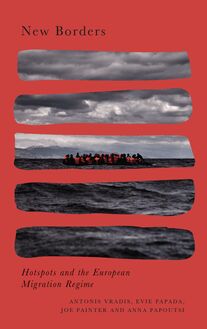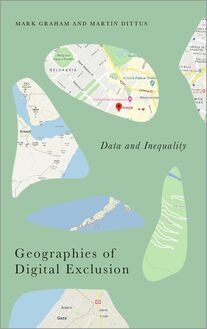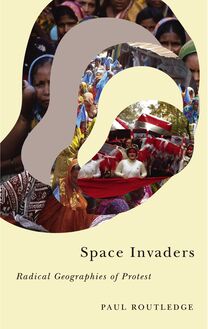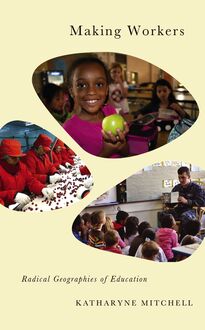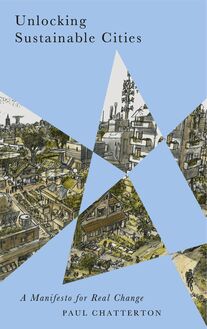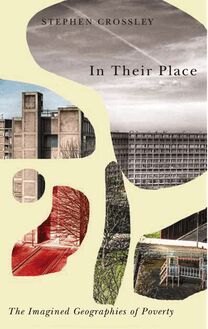In Their Place , livre ebook
105
pages
English
Ebooks
2017
Vous pourrez modifier la taille du texte de cet ouvrage
Obtenez un accès à la bibliothèque pour le consulter en ligne En savoir plus
Découvre YouScribe en t'inscrivant gratuitement
Découvre YouScribe en t'inscrivant gratuitement
105
pages
English
Ebooks
2017
Vous pourrez modifier la taille du texte de cet ouvrage
Obtenez un accès à la bibliothèque pour le consulter en ligne En savoir plus
Publié par
Date de parution
20 août 2017
Nombre de lectures
1
EAN13
9781786801203
Langue
English
The alleged behavioural failings of 'poor people' have attracted a great deal of academic and political scrutiny. Spatial inequalities are also well documented and poor neighbourhoods have been extensively researched. However, other spaces have been re-imagined in different ways by politicians, academics, journalists and social reformers. These imagined geographies include exoticised slums, cities being reclaimed by nature, the street and domestic spaces like the kitchen, or even the bedroom.
In Their Place highlights how these spaces are represented and how these representations are deployed, manipulating political and media discourses around the individuals and communities who live there. These distortions are often used to keep people in their place by making sure everyone knows where 'the poor' belong. This book will reorient those interested in human geography away from 'deprived neighbourhoods' and back to the foundational spaces where political decisions - and poverty - are made in Britain today.
Acknowledgements
Series Preface
1. Introduction: The Spaces of Others
2. Swamps and Slums: Exoticising the Poor
3. Tales of Two Cities
4. Neighbourhood Effects or Westminster Effects?
5. Streetwise?
6. The Heroic Simplification of the Household
7. Piles of Pringles and Crack: Behind Closed Doors
8. Less Public, More Private: The Shifting Spaces of the State
9. Studying Up
Notes
Index
Publié par
Date de parution
20 août 2017
Nombre de lectures
1
EAN13
9781786801203
Langue
English
In Their Place
Radical Geography
Series Editors:
Kate Derickson, Danny Dorling and Jenny Pickerill
Also available:
Space Invaders Radical Geographies of Protest Paul Routledge
In Their Place
The Imagined Geographies of Poverty
Stephen Crossley
First published 2017 by Pluto Press 345 Archway Road, London N6 5AA
www.plutobooks.com
Copyright Stephen Crossley 2017
The right of Stephen Crossley to be identified as the author of this work has been asserted by him in accordance with the Copyright, Designs and Patents Act 1988.
British Library Cataloguing in Publication Data A catalogue record for this book is available from the British Library
ISBN 978 0 7453 3683 1 Hardback ISBN 978 0 7453 3679 4 Paperback ISBN 978 1 7868 0119 7 PDF eBook ISBN 978 1 7868 0121 0 Kindle eBook ISBN 978 1 7868 0120 3 EPUB eBook
This book is printed on paper suitable for recycling and made from fully managed and sustained forest sources. Logging, pulping and manufacturing processes are expected to conform to the environmental standards of the country of origin.
Typeset by Stanford DTP Services, Northampton, England
Simultaneously printed in the United Kingdom and United States of America
Contents
Acknowledgements
Series Preface
1 Introduction: The Spaces of Others
2 Swamps and Slums: Exoticising the Poor
3 Tales of Two Cities
4 Neighbourhood Effects or Westminster Effects?
5 Streetwise?
6 The Heroic Simplification of the Household
7 Piles of Pringles and Crack: Behind Closed Doors
8 Less Public, More Private: The Shifting Spaces of the State
9 Studying Up
Notes
Index
For Harriet, Daisy and Sam. I hope I make you proud .
Acknowledgements
The idea of a sole-authored book is, in this instance at least, a misnomer. Whilst the majority of the words that follow are mine, the ideas on which they are based, and the work on which they hopefully build, are not. Although relatively few people have been directly involved in helping me write this book, many more have been supportive of me in my wider writing endeavours and in helping me think through and develop some of the ideas contained within these pages. There are too many of these people to mention individually here but, hopefully, you know who you are. If in doubt, ask me next time you see me.
My PhD supervisors Roger Smith and Lena Dominelli have given me the confidence, freedom and time to write this book when really I should have been concentrating on my thesis. Thank you. Jenny Thatcher and her colleagues of the British Sociological Association Bourdieu Study Group kindly invited me to give a paper at an event they held in November 2014, which encouraged me to explore the through the front door rhetoric associated with the Troubled Families Programme, discussed in Chapters 7 and 8 . I believe Tracey Jensen must take some of the blame/credit for suggesting me. Sadie Parr also kindly invited me to submit an article to People, Policy and Place online, which enabled me to clarify and formalise some of my thinking around changing state forms and interventions - and this was also very helpful preparation for Chapter 7 . Dan Silver s photographic reminders about the symbolic power of abandoned shopping trolleys reassured me that this issue was a thing .
In tracing the events that led to me submitting a proposal for the Radical Geography series, I must thank Jane, John, Adrian, John again, Tom, Ted, Linda, Ted again, and Danny. The views of the three anonymous reviewers were very helpful in shaping the final manuscript. New colleagues at Northumbria University have helped protect me from the potential ravages of entering employment as a university lecturer in the current period. Special thanks go to Lucy, Claire, Marion, Justine, Sean, Alison and John, who have been very supportive and protective of me, helping me to find time to write, although I m not sure many were aware of just what I was doing when I kept telling them I was busy.
Danny Dorling, surely a contender for nicest man in academia, has been incredibly supportive and approachable since the day I first met him. Being told by him that he thought we shared the same prejudices remains a career highlight. His comments on drafts of the chapters have undoubtedly added to the book. Maggie Walker and Ian Menter also helped to make sure the final version was a lot more incisive than my first attempts. David Castle at Pluto has been consistently supportive and helpful, and patient. And Neda s e-mails always made me smile, so thank you as well.
Special mention must go to Tom Slater and Gerry Mooney, whose critical interrogations of place and space, and the ways in which spaces can be deployed and used against marginalised groups, have been so useful to me. I returned to them many times when I was struggling with my writing. But more than that, they have both been very consistent supporters of me, and my other scholarly efforts. I would like them to know that their messages and offers of support mean a lot to me.
Finally, Mam, Dad and Jo, thank you for everything.
Series Preface
The Radical Geography series consists of accessible books which use geographical perspectives to understand issues of social and political concern. These short books include critiques of existing government policies and alternatives to staid ways of thinking about our societies. They feature stories of radical social and political activism, guides to achieving change, and arguments about why we need to think differently on many contemporary issues if we are to live better together on this planet.
A geographical perspective involves seeing the connections within and between places, as well as considering the role of space and scale to develop a new and better understanding of current problems. Written largely by academic geographers, books in the series deliberately target issues of political, environmental and social concern. The series showcases clear explications of geographical approaches to social problems, and it has a particular interest in action currently being undertaken to achieve positive change that is radical, achievable, real and relevant.
The target audience ranges from undergraduates to experienced scholars, as well as from activists to conventional policy-makers, but these books are also for people interested in the world who do not already have a radical outlook and who want to be engaged and informed by a short, well written and thought-provoking book.
Kate Derickson, Danny Dorling and Jenny Pickerill Series Editors
1
Introduction
The Spaces of Others
The idea of difference is at the basis of the very notion of space, that is, a set of distinct and coexisting positions which are exterior to one another and which are defined in relation to one another through relations of proximity, vicinity, or distance, as well as through order relations, such as above, below, or between.
Pierre Bourdieu, 1996. 1
THE OTHERS
Space has been called the fundamental stuff of geography , 2 and many influential geographers such as Henri Lefebvre, Doreen Massey, David Sibley and Edward Soja have written extensively on the importance of space and the ways in which it is socially produced and reproduced, shaping and being shaped by our relations with each other. By way of example, in her book For Space , Doreen Massey articulated three opening propositions : space is the product of interrelations and is constituted through interactions, whether global or intimate; space is the sphere of possibility and represents multiplicity, heterogeneity and plurality - a site where individual trajectories co-exist; and space is always under construction, never finished and never closed. 3 There is, then, general agreement that the concept of space as a dead, fixed and immobile place is no longer relevant. Massey stated in For Space that it may therefore be productive to think about space differently. This book attempts to think differently about the spaces associated with people living in poverty. There is, however, no grand narrative, or meta-theory being advanced here. Instead, the intention is to draw attention to the ways in which various groups of people, such as politicians, academics, policymakers, journalists and social reformers use spaces in different ways, doing so, more or less explicitly, to support and augment their arguments and perspectives on poverty.
The alleged behavioural failings and moral inferiority of people living in poverty have attracted a great deal of academic and political scrutiny over the course of the last 400 to 500 years. Researchers have argued that the conflation of poverty with criminality can be traced back to the happy sixteenth-century custom of chopping off the ears of vagabonds, rogues and sturdy beggars . 4 Other issues such as poor parenting, drug addiction, a less than enthusiastic approach to work, sexual promiscuity and poor financial management have also been advanced as causes or drivers of poverty on a fairly regular basis. These insinuations are examples of how people experiencing poverty are Othered by the rest of society, or those who do not experience such hardship. In this way, the alleged behaviour of the poor help to establish them as a distinct group, a separate social entity different and inferior to the non-poor . Othering has been described as:
A dualistic process of differentiation and demarcation, by which the line is drawn between them and us - between the more and the less powerful - and through which social distance is established and maintained. It is not a neutral line for it is imbued with negative value judgments that construct the poor variously as a source of moral contamination, a threat, an undeserving economic burden, an object of pity or even as an exotic species. 5
Baroness Lister, who has written extensively about poverty and the negative representations of people living on low-incomes, describes Othering as a discursive strategy that magn
